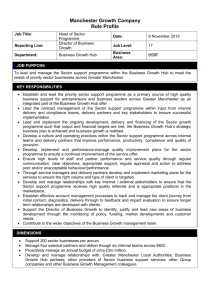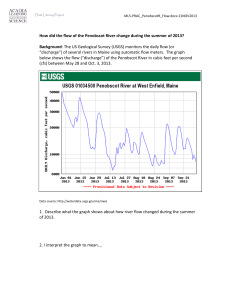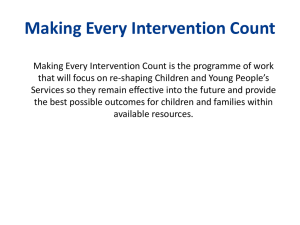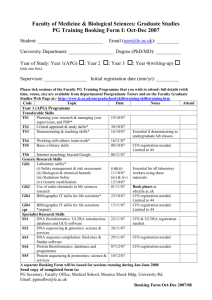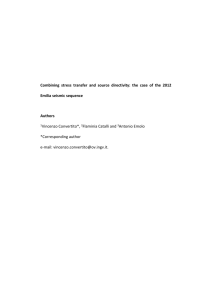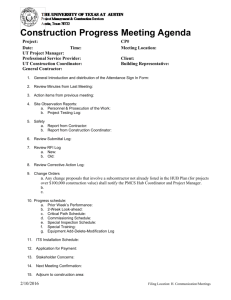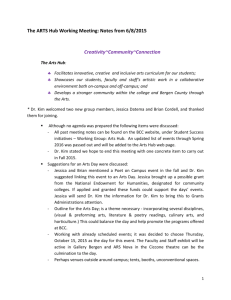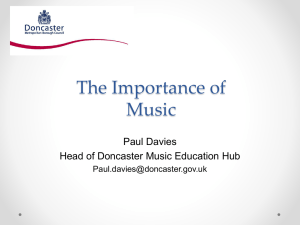Request for Proposals to participate in the Community Food Security
advertisement
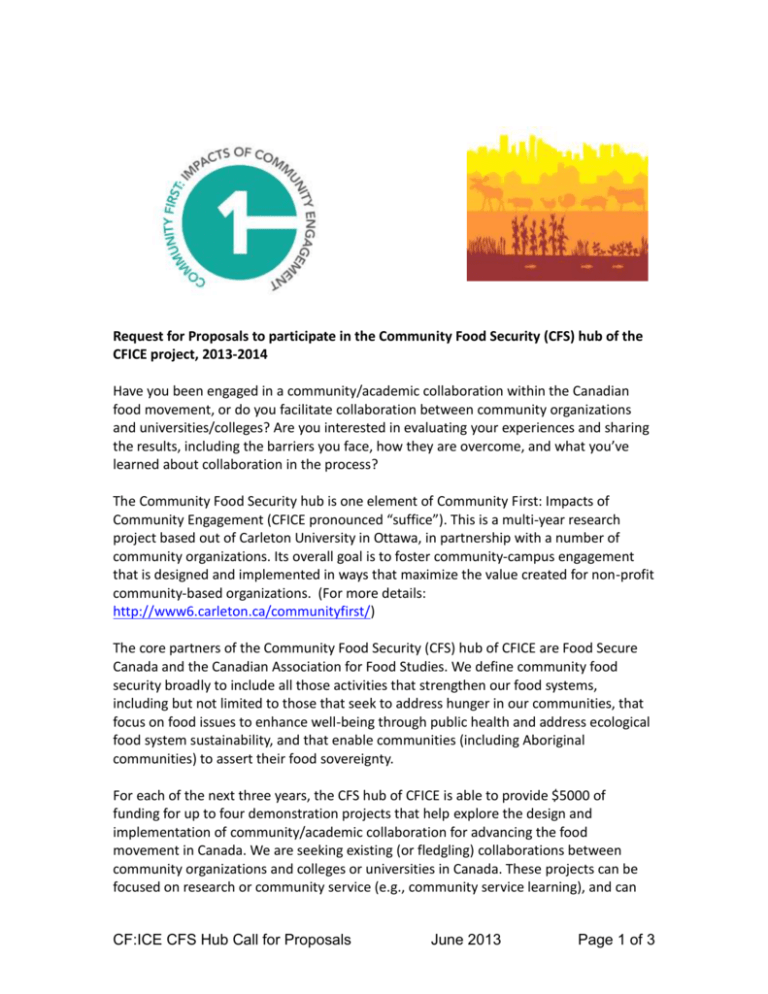
Request for Proposals to participate in the Community Food Security (CFS) hub of the CFICE project, 2013-2014 Have you been engaged in a community/academic collaboration within the Canadian food movement, or do you facilitate collaboration between community organizations and universities/colleges? Are you interested in evaluating your experiences and sharing the results, including the barriers you face, how they are overcome, and what you’ve learned about collaboration in the process? The Community Food Security hub is one element of Community First: Impacts of Community Engagement (CFICE pronounced “suffice”). This is a multi-year research project based out of Carleton University in Ottawa, in partnership with a number of community organizations. Its overall goal is to foster community-campus engagement that is designed and implemented in ways that maximize the value created for non-profit community-based organizations. (For more details: http://www6.carleton.ca/communityfirst/) The core partners of the Community Food Security (CFS) hub of CFICE are Food Secure Canada and the Canadian Association for Food Studies. We define community food security broadly to include all those activities that strengthen our food systems, including but not limited to those that seek to address hunger in our communities, that focus on food issues to enhance well-being through public health and address ecological food system sustainability, and that enable communities (including Aboriginal communities) to assert their food sovereignty. For each of the next three years, the CFS hub of CFICE is able to provide $5000 of funding for up to four demonstration projects that help explore the design and implementation of community/academic collaboration for advancing the food movement in Canada. We are seeking existing (or fledgling) collaborations between community organizations and colleges or universities in Canada. These projects can be focused on research or community service (e.g., community service learning), and can CF:ICE CFS Hub Call for Proposals June 2013 Page 1 of 3 involve working with individual professors, graduate students, or entire classes of undergraduate or college students. CFICE funding for this year1 is not intended to be the core funding to support the creation of a brand-new partnerships (which must demonstrate other sources of funding or in-kind support). Rather, CFICE funds allows for an extension of the work2 and an evaluation of impacts of ongoing or recently completed projects on communities, on students, on faculty, etc. including consideration of how community-campus partnerships could be made more effective (e.g. through an examination of possible institutional changes). The CFS hub may also provide additional funding to enable one or more project partners to attend conferences to share the results of their work (e.g., Canadian Association for Food Studies or Food Secure Canada meetings). Projects funded should demonstrate how they will help us address the core CFICE research question: • “How can community-campus engagement, including community service learning (CSL) and community-based research (CBR), be designed and implemented in ways that maximize the value created for non-profit community-based organizations?” (For a list of research sub-questions which your projects may seek to address, see http://foodsecurecanada.org/cfs-hub-request-proposals ) Each project should also demonstrate that it is contributing to the Canadian food movement in a way that aligns with at least one of the three central goals of Food Secure Canada: - Zero Hunger - Healthy and Safe Food - Sustainable Food Systems We are particularly interested in projects designed to provide a stronger evidence base for Food Secure Canada’s policy agenda (e.g. one or more of the policies identified in the People’s Food Policy). For examples of past projects funded by the Community Food Security hub of CFICE, see our page on the Food Secure Canada website. 1 In 2 future rounds of funding, we do hope to support NEW projects, so stay tuned! Extending work may include undertaking new case studies, or revisiting results and knowledge dissemination, as long as the key collaborating organizations have worked together before. CF:ICE CFS Hub Call for Proposals June 2013 Page 2 of 3 Timeline: Call for Proposals: May 31, 2013 Applications due: June 30, 2013 Decisions made by: July 31, 2013 Workplans and ethics applications submitted by: August 31, 2013 Project execution: September- April, 2013 Contact Information: Abra Brynne, Food Secure Canada e-mail: abra@foodsecurecanada.org phone: 250.352.5342 (pacific time zone) Application (2-3 pages): Who are the core partners involved in your project? (names, contact info, roles) (Please specify who is to be main contact person) What are the main goals of your collaboration? How do these goals align with the core goals of FSC noted above? What parts of the work do you hope to support through CFICE funding? Who will benefit from this work? What do you think would be of most interest to other activists or academics working in the Canadian food movement? How would an evaluation of your work help address the core CFICE research question? Which of the CFICE sub-questions will your project address? How do you plan to approach the evaluation of your collaboration? If you have a specific evaluation framework in mind, describe it here. Otherwise, please explain how you want to review and reflect on the work you are doing and its impacts in order to learn from it. Have you already evaluated aspects of this work in the past? If so, how will you integrate the findings of previous evaluations into this next phase of evaluation? Proposed use of $5000 budget (e.g. paying for a workshop or focus group, hiring a graduate student research assistant, hiring a consultant, travel, etc.)? What other resources do you or your partners bring to this work (cash and/or inkind contributions)? CF:ICE CFS Hub Call for Proposals June 2013 Page 3 of 3
